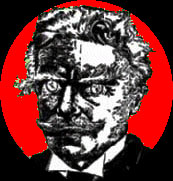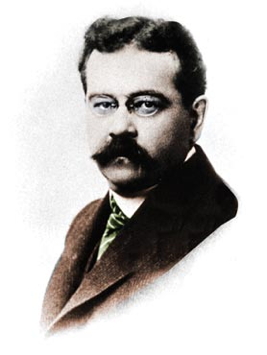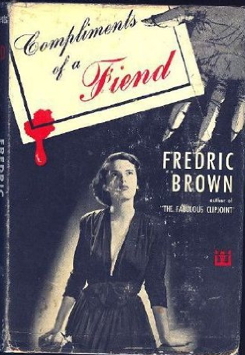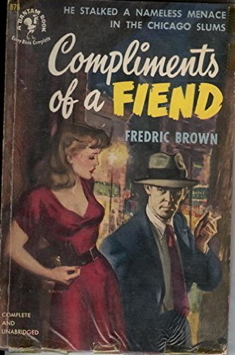 |
the AMBROSE BIERCE site |
 |
the AMBROSE BIERCE site |
Fans of the weird tale sometimes forget about the paranormal writer CHARLES FORT, author of Wild Talents (1932). Fort raises an intriguing (but ultimately silly) question: Was somebody collecting Ambroses? This came about because some years after Ambrose Bierce's disappearance in Mexico, a Canadian businessman named Ambrose Small also vanished without trace. In Wild Talents, Fort writes: "And I'd not say that my question, as to what the disappearance of one Ambrose could have to do with the disappearance of another Ambrose, is so senseless. The idea of causing Ambrose Small to disappear may have had origin in somebody's mind, by suggestion from the disappearance of Ambrose Bierce. If in no terms of physical abduction can the disappearance of Ambrose Small be explained, I'll not say that that has any meaning, until the physicists intelligibly define what they mean by physical terms." A resourceful Fort fan known only as "X" has made Wild Talents available on the Internet (it's also a Kindle book). Bierce makes his appearance in Chapter Two: HERE   Charles Fort, author of Wild Talents In the September 1971 issue of Fantasy and Science Fiction, Arthur Jean Cox expanded on the Charles Fort theme with a short story called "A Collector of Ambroses," later published in book form, which can be read : HERE Fredric Brown and the Bierce/Fort Connection by Robert Pohle Bierce enthusiasts might like to know that the great science fiction and mystery writer Fredric Brown (1906-1972) begins his novel Compliments of a Fiend (1950) with an excerpt from the book Wild Talents by Charles Fort (1874-1932): in that quote Fort famously speculated about the disappearance of two people named Ambrose (including Bierce of course) and wondered "was someone collecting Ambroses?" Brown's novel deals with the disappearance of a third person named Ambrose and an actual "Ambrose collector." There are Fortean references throughout this novel, and Brown was in fact a devoted student of Fort. Biercean references are not as immediately evident, but they are indeed present as well. Brown, like Bierce, is an expert at switching between the horrific and the humorous, and his humor tends to be of the biting variety. In fact, the novel has more than a few aphoristic comments of somewhat Biercean flavor, such as "...you can get places faster if you don't run..." Brown, like Bierce, was born in Ohio, and in this novel the hotel room to which the central Ambrose character (there is more than one) is headed when he disappears, is registered to a character from Ohio. The disappeared character is named Ambrose Hunter, and at one point discusses opening a business named the Ambrose Collection Agency. The person who causes Ambrose Hunter to vanish actually claims to be named Mr. Ambrose Collector, but through most of the novel is referred as the Ambrose collector.   The book was first published in hardcover by Dutton in 1950, and then in paperback by Bantam the next year: the covers of these two editions are reproduced here. It was the fourth in Brown's detective series about Ed Hunter and his uncle Ambrose, which series eventually extended to seven novels and several short stories. The first in the series, The Fabulous Clipjoint, had won an Edgar award (named for Poe, of course‹himself no mean hand at combining humor and horror). Curiously enough, Brown had originally used the title "Compliments of a Fiend" for a short story in a 1945 issue of Thrilling Detective magazine; when Brown novelized that story as The Bloody Moonlight in 1949, the "Fiend" title was free for him to use in this Ambrosian novel. There are other literary influences besides those of Bierce and Fort in Compliments of a Fiend: for example, two characters are surnamed "Dagon," evoking H.P. Lovecraft (himself a Bierce admirer of course...) In conclusion, this is a noirish sort of thriller which is enjoyable in its own right, and should definitely be at least glanced at by Bierce fanciers. Robert Pohle has been reading and collecting Ambrose Bierce for half a century, and had an ancestor who served in several campaigns with Bierce in the Civil War. Pohle, author of thirty books, is currently updating his 1983 book, The Christopher Lee Film Encyclopedia (Rowman & Littlefield), coauthored with his daughter Rita Pohle Baldwin.
|